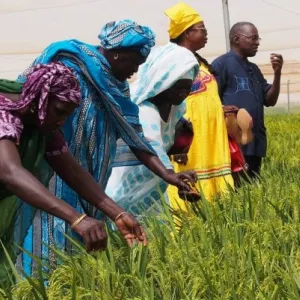Access and control of resources and participation in rice-breeding activities among men and women farmers in Southern Ghana
Women in Ghana have been found to adopt high-yielding varieties and improved management systems at lower rates than men. There is an urgent need for women farmers to participate meaningfully in the technology development process in order to enhance the adoption of new technologies to enhance productivity and improve the incomes and well-being of women. Agricultural development aims at ending

Access and control of resources and participation in rice-breeding activities among men and women farmers in Southern Ghana
Women in Ghana have been found to adopt high-yielding varieties and improved management systems at lower rates than men. There is an urgent need for women farmers to participate meaningfully in the technology development process in order to enhance the adoption of new technologies to enhance productivity and improve the incomes and well-being of women.
Agricultural development aims at ending poverty, increasing food security, and improving the livelihoods of rural farm households in developing countries. Evidence indicates that men and women do not adopt new technologies at the same rate or do not benefit equally from their introduction.
Women in Ghana have been found to adopt high-yielding varieties and improved management systems at lower rates than men. There is an urgent need for women farmers to participate meaningfully in the technology development process in order to enhance the adoption of new technologies to enhance productivity and improve the incomes and well-being of women.
Empirical studies in Benin, Ghana, Ethiopia, Malawi, and Nigeria have all documented gender-based inequalities in the adoption of improved technologies.
A number of factors result in inequalities between men and women in the participation of rice-breeding varieties. These include gender norms and cultural practices and uneven access to resources that affect participation in household decision-making, agricultural activities resulting in low productivity, and low rates of adoption.

